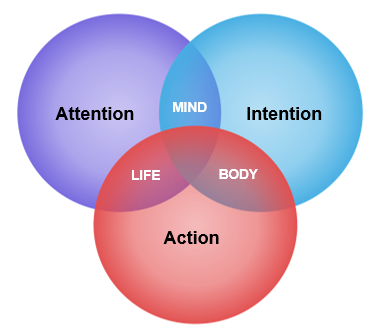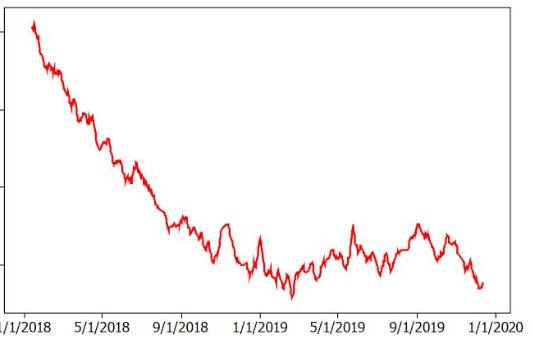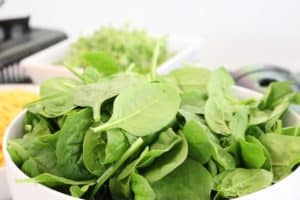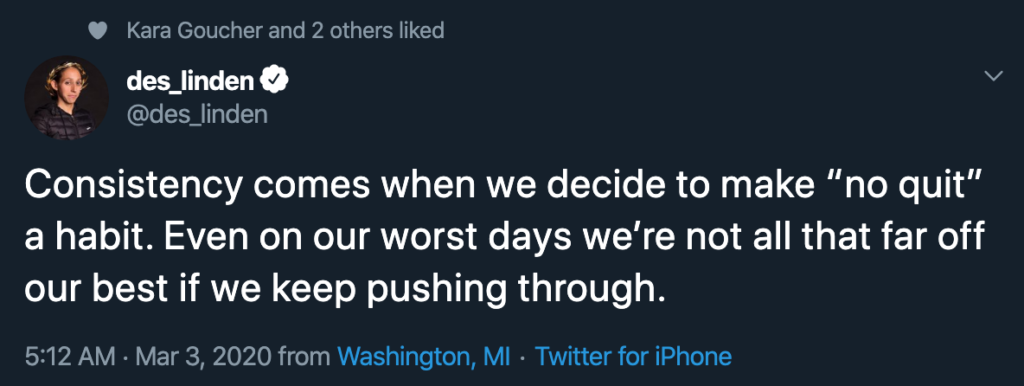What Makes a Workout?
 In an episode of the Second Wind Fitness podcast, I gave a brief history of the gym (or the “health club” as it was known). In my research, I discovered that it was in about 1977 that the majority of the population slowly started to be introduced to the idea that gyms were a place that you could go to “get fit.” But it didn’t really catch on until the 1980s.
In an episode of the Second Wind Fitness podcast, I gave a brief history of the gym (or the “health club” as it was known). In my research, I discovered that it was in about 1977 that the majority of the population slowly started to be introduced to the idea that gyms were a place that you could go to “get fit.” But it didn’t really catch on until the 1980s.
I was 6-years-old in 1977 (and honestly didn’t step foot in a gym until the 1990s) and yet, many of you reading this and many of my peers still have the idea that you can’t get fit if you can’t afford, don’t like, or don’t have time to get to the gym. Or more recently, don’t have a Peleton, treadmill or visit a yoga studio (real or virtual).
Interesting, eh? It really didn’t take us very long to somehow lose our innate ability to maintain our own fitness without outsourcing it to someone or someplace. And never has this lack of understanding been so pointed and obvious as it has been during this current viral lockdown.
Everyone and their dog is currently sharing their workouts on social media, asking people like me to teach some workouts they can do at home, and online workout services are gaining more traction than ever because of this lack of understanding of how to stay fit on our own. And I am not trying to shame anyone. This is a good and natural reaction but …
Give a person a workout video and they are sweaty for a day.
Teach a person how to exercise and they are fit for life.
So, I want to make it simple for you. Are you ready?
The three criteria that a movement needs to fill in order to qualify as an exercise are:
- Raise your heart rate (a little or a lot)
- Challenge your muscles (a little or a lot)
- Move your body beyond your comfort level (a little or a lot).
That is all.
Here’s an example: let’s say you are carrying the laundry basket up some stairs, how can make that into an exercise?
- Go up the stairs quicker or two steps at a time,
- add more weight to the basket,
- hold the basket in a different way than usual,
- go up some of the stairs sideways.
- Boom – you are exercising! And getting the laundry done!
Now you may be thinking, “that sounds too easy, what if I am more fit than that?”
Well, there are three factors that need to increase to create fitness, and they are:
- Distance
- Duration
- Intensity
That is all.
Here’s an example of this: let’s say you have been carrying that same laundry basket up the stairs for a few weeks and it is feeling easy now. Then you could:
- increase the intensity (by adding more weight to the basket),
- you could increase the distance (by going up and down the stairs a few times),
- you could increase the duration (by taking each step slower and more controlled).
- Boom – you are getting more fit from the same task!
Sure this is overly simplified. There are a lot more factors you can add in (like which body parts you want to develop) and more considerations that are fun to focus on (learning to do a pull-up) but when it comes to doing nothing (because you feel so lost) and doing something simple like this (because let’s face it, we all need to do laundry during the pandemic) I would choose this every time!
How to feel better right now

How many times in the last 24 hours have you said (either outloud or to yourself) “I’m so stressed” or “This is so incredibly stressful!”?
And it’s true: We are all going through something completely unfamiliar and unknown. We have to do things we’ve never done before, We have to find completely new ways of doing things that we’ve been doing all of our lives.
This is the textbook definition of stress.
For most of us, the word “stress” has a very negative, even harmful connotation. And when we hear and say and think it over and over again, it enhances the sense of doom and disaster.
But stress is not inherently bad or good, positive or negative. It’s just challenging. And simply replacing the word “stress” with the word “challenge” can ratchet down the anxiety. And help you reclaim a sense of control and resilience.
Challenges can be energizing. They may cause us to discover strengths and talents we never dreamed of. We may have ideas and inspirations and experiences that we would never have had otherwise.
Of course, challenges can ALSO be difficult. They may be frightening, or painful, or sad. We may feel fatigued or anxious or numb. I’m not denying that.
But we can work with those feelings (and our responses to them) much more effectively if we can name them more specifically.
So, instead of saying you feel “stressed” and diving for the chocolate, see if you can be more specific. What actual physical sensations are you aware of? What emotions are you feeling?
And then consider how you can relieve that sensation, or address that feeling.
- If you’re hungry, fix a meal that will nourish both body and spirit.
- If your muscles are tense, try a gentle stretching routine.
- If your breathing is shallow, try some deep breathing.

- If you are tired, try taking a nap.
- If you are feeling grief, allow yourself to mourn.
- If you are keyed up, try releasing some energy by taking a brisk walk.
- If you are worried about someone, try reaching out to them.
- If you are anxious about having too many things on your to do list, do one of them. (Or, remove one of them!)
- If you’re feeling overwhelmed, ask for help.
- If you’re depressed by news, turn it off.
- If you’re anxious about the future, bring your focus gently to the present, which is the only realm in which you have any agency.
- If you’re lonely, reach out to a friend.
We are all stronger, more resourceful and more resilient than we ever imagined. I don’t think any of us would have chosen to be in our current circumstances. But every challenge is an opportunity for growth. And massive challenges offer the opportunity for massive growth.
The hidden opportunity in the current chaos
Who can focus on their health goals when the world is falling apart? Who can resist comfort food when all of our normal comforts have been pulled out from under us?
Who has the bandwidth to work on behavior change right now? Who could blame you for stress eating your way through the next few months?
If thoughts like these have been running through your head, I want to offer you a completely different possibility.
Not only has it never been more important to work on our mindset and habits, it’s also never been easier.
This unprecedented set of circumstances offers an unprecedented opportunity.
After all, what is it that has always kept us from making progress in the past? We’re too busy. We’re running from thing to thing, over-committed and over-extended. No time to think, much less plan.
Well, many of us just became full-time telecommuters. Most of our social lives and recreational activities have ground to a halt.
With nowhere to go, we suddenly have more time on our hands. Almost too much time. We’re bored and restless.
Perfect.
When else do we have time to slow down and observe our thoughts? To insert a pause between the moment we feel an urge or impulse and the moment we respond to it–and see what’s really going on in there?
To be more intentional about what, when, and how much we are going to move, eat, work, and rest. To put some real thought into how we are going to execute our plan. To try it out, analyze our results, tweak, and try again?
None of us have ever experienced anything like this. And it will not go on forever. But we can absolutely exit this crazy episode with better habits and mindset than we went into it with.
I hope you’ll give it a try.

Self-care for stressful time
I don’t have to tell you that we’re living through some particularly stressful times right now. And for many of us, eating is a tried and true response to stress.
I take that back. It’s certainly well-tried. But is it really true? Does eating relieve the stress? Only for a moment, at best.
It obviously doesn’t do a thing to change the circumstances. And often, it piles on more stress in the form of regret, self-judgment, or other negative consequences.
One day–and hopefully soon–the current crisis will have passed. Things will get back to normal. The stock market will recover. We’ll go on with our lives. And when that happy day comes, let’s make sure we’re not 10 pounds heavier!
Better stress management skills would probably help. Unfortunately, most of us don’t start thinking about learning how to manage our stress until we’re virtually incapacitated by it. And trying to master a relaxation technique in the midst of an anxiety attack is a little like trying to read the instructions on the fire extinguisher when the kitchen is already on fire.
If you’re seriously stressed out, sitting down to meditate or practice yoga or do a body scan–if it’s not something you do regularly–may leave you feeling even more stressed.
I’d like to suggest a two-step approach.
#1. Leave a note for your future self. “Dear Self, now that everything has calmed down a bit, and it doesn’t feel like your hair is on fire, wouldn’t this be the perfect time to sign up for that meditation or yoga class, listen to that online course on stress reduction techniques, or create a daily relaxation routine?”
#2. And starting today: practice precovering. Instead of waiting until you’re feeling stressed to start looking for a release valve, find ways to pre-release the pressure. Make a little extra time for activities that you find relaxing and calming and use these as a way to “precover” from the stress that each day is sure to bring. Even 10 or 15 minutes a day of effective self-care can make you more resilient.
The difference between numbing and relaxing
Let me also share an insight I have learned the hard way. Distracted is not the same as relaxed. Numb is not the same as calm. Ice cream, Netflix, Chardonnay, and eBay are all great ways to distract and numb. They are not great at generating peace and resilience.
Don’t feel like you have to stick to the cliches. Bubble baths and lavender oil may not be your cup of (herbal) tea.
Maybe for you it’s line dancing. Or playing piano. Or puttering in the garden. Or playing laser tag with the cat. (What is it for you? I’m always looking for ideas to expand my repertoire.)
Whatever it is, try to do it on a daily basis, whether or not you feel you “need” it. If it feels like recovery, it’s too late. (That said, better late than never.)
Make “no quit” Your New Habit
A day or so after one of my favourite runners of all time came in fourth in the USA Marathon Olympic trials, Boston Marathon Champion, 2-Time Olympian, and NCAA All-American, Des Linden, posted this on Twitter.
I share this for a few reasons:
- Des had every reason to feel defeated and down after barely missing a spot on the 2020 USA Olympic Marathon team but instead she focussed on the fact that she didn’t quit and kept pushing through.
- The idea that we can actually make a decision like “no quit” into a habit in our daily life is one that lends itself to success in many areas of life.
- If we don’t quit, we can make our worst days into barely a hiccup rather than a disastrous cascade of choices that don’t align with our goals.
You know, before folks join us in the Weighless program, one of the prevailing issues that we see repeated again and again, is that when a person hits a bump in the road and makes a misstep (like eating a cupcake at the office birthday party or being too busy to make it to the gym) that instead of accepting that they slipped up and get immediately back on track, they quit and throw caution to the wind for the remainder of the day – or the week – or the month – and they resign themselves to start again when they are “really ready.”
But what if they added “no quit” as a habit?
What if they simply shook off that momentary lapse and got right back on track? Well, then they would join us in taking their worst day and make it “not that far off their best day.” A day that would have otherwise turned into a stream of regrettable decisions would instead be a day where you missed your workout but went for a lunchtime walk instead. Or you ate the cupcake but then had a lovely piece of fish and a salad for dinner.
The truth is that every time we give ourselves an excuse to quit, we get better at quitting. But every time we don’t quit, we get better at pushing through.
Which one would you rather practice?
8 Ways to Know Whether Weighless is Right for You
Maybe you’re still on the fence, wondering whether or not it’s right or you.
And we don’t blame you for for having doubts. It’s a big commitment we’re making to each other. How can you be sure it’ll pay off?
Here’s the truth: The Weighless Program isn’t right for everyone.
If you’ve attended one of our free workshops, watched the interviews with our past members, read through all the testimonials, and combed through the enrollment page, then by now you’ve probably got a pretty good idea what we do.
But if you’re STILL not feeling like you have the confidence to pull the trigger … we want to make this decision a bit easier for you.
We want to help you know, beyond a shadow of a doubt, whether this program can help you finally leave behind the yo-yo dieting cycle and become someone who weighs less.
8 Ways to Know Whether Weighless is Right For You
1. Solving this problem is important to you. This needs to be something you really want for yourself and not because someone else, like your doctor, spouse, kids, or society, thinks you should care about.
2. You’re willing to try a different approach (after all, how is the old approach working for you?)
3. You want something that’s grounded in science and not hype, woo, or magical thinking.
4. You’re ready to take a closer look at the ingrained patterns keeping you stuck
5. You’re willing to take ownership of the process. Don’t worry: you won’t be alone, we are there to guide you. But this is ultimately your journey.
6. You’re willing to make your health a priority. Even if that means that others in your life might have to step up.
7. You can commit 30 minutes a week. We know life can get crazy. But if you can set aside 30 minutes each week, you can reap the rewards.
8. You’re OK with losing weight more slowly in exchange for never having to lose it again. We’ve been trained to expect fast weight loss. But the truth is, slower weight loss is easier on you, your body, your metabolism, and far more sustainable. (Plus, you actually look better faster.)
If you feel you can say Yes to all (or even most) of these questions, we would love to have you join us.
Details for enrolling in our next year-long program are here.
Related:
Three Ways Weighless Can Change Your Life
From the outside, the Weighless program probably looks like a weight loss program.
But it is so much more.
Every day we hear from our members that the skills and tools that they are learning aren’t just changing the number on the scale:
This work is changing the way they live and think, how they communicate with others, how they show up at work and with their families, how they understand their own motivations and behavior, even their goals for the future!
Here are a few of the ways that the Weighless program can change your life and not just the number on the scale.
#1. You will finally have your own back.
So often, when we struggle with our weight, it feels like we are literally at war with ourselves. We sabotage our progress. We make choices that know are moving us away from our goals. We are our own worst enemy. The worse we feel, the worse we treat ourselves.
But it doesn’t have to be this way. Here are a just few of the notes of that we’ve gotten from our members:
“I have never felt so confident in my ability to take care of my own self and my own needs. It’s actually impacting several areas of my life and I am so so grateful. I have lost weight, but more important is the perspective, skills and confidence I have gained. For the first time in my whole life I don’t feel like I’m my own worst enemy. I’m proud of myself” Zahra H.
“When I started the program, I was praying that I could get control over my food thoughts and choices. I was always thinking about what I was going to eat next. I was afraid to go to the grocery store because I felt like I had no control. Fast forward to today where the grocery store holds no fear for me thanks to this program. It has totally changed the way I think (or don’t think) about food. I routinely walk past food that once had so much power over me. Today I had a realization about how far I have come. I feel normal and not alone and for this I am truly grateful.” Terri J.
“Instead of making food choices in order to lose weight, I’m now making decisions that improve my health So my resulting weight loss feels like a welcome side effect to my food choices. It’s a pro-health and pro-me approach to food and life. This non-diet, this Weighless approach, has been free from the backlash, setbacks, binge eating and guilt that has plagued me with diets.” Gila G.
“I have benefited enormously from your program and especially the discussions, support system, encouragements and ideas from the group. I have lost almost 10% fairly easily and have become a much more mindful and self aware non dieter. I have found strengths I did not know I had. I never could have gotten here on my own and I am very grateful for your program.” Fran W.
#2. Holidays and vacations will no longer be a source of dread and anxiety.
“Can I lose enough weight before we leave?”
“How much weight will I gain before its over?”
“How can I stick to my diet with all this temptation?”
“How can I enjoy myself if I’m trying to stick to my diet?”
“This will probably erase all the progress I’ve made and put me back at square one”
These are the kinds of thoughts that vacations and holidays often dredge up. To the point where you don’t even look forward to them anymore. Again, from our members:
“Yesterday when I got home from being gone for the holidays, I stepped on the scale. I’m the same as when I left 2 weeks ago! A surprise, considering the haphazard schedule and occasional treats. Then it hit me. I’ve shed the yo-yo dieter skin. Last year and every previous year since God created the earth I’ve started some crazy new diet come the New Year. Not this year. I’m happy. I’m not where I want to be yet, but I’m on the path that will take me there. Thanks, everyone! Happy New Year!” Beth G.
“I made a goal that I would not gain weight in December. I just got off of scale and am down 2.4 pounds! I ate cookies, participated in family events and a holiday party at work, and bypassed countless doughnuts at work, ‘weighing less’ on the last day of the month. Yay me and this wonderful program!” Louanne S.
“One of my favorite things about this program is that I do not dread special events. I’m not waiting to start a diet until all the planets align and there are no special events on the horizon. I have navigated weddings, vacations and holidays without obsessing over food choices.” Ellen L.
“I leave to visit my family in Ireland tomorrow. In the past, I would set myself up to fail by resolving to lose 10 or 15 lbs – usually in the 8 weeks prior to a trip like this. The weight loss never happens but the stress and anxiety and feeling of failure leads to the “what the hell” and then you gain a few more pounds!! I am glad to say that thanks to the changes I’ve made in this program, I have not been stressed and I feel confident that I can enjoy my holiday without feeling deprived.” Jackie L.
#3. You’ll have more energy to deal with the rest of your life (not less)
When we’re not happy with our weight, it’s tempting to put other goals on hold until we solve that problem. Which never gets solved. And so, life stays on hold. In the Weighless program, it’s exactly the opposite. Instead of everything staying stuck, everything starts to move in the right direction.
“The thing that amazes me most is how enjoyable this new lifestyle is. I don’t feel deprived, or like I’m having less fun (which is what I expected). If anything I feel more energetic and joyful. I would never have believed it 6 months ago.” Kate T.
“Life has been been chaotic the last few months, but I discovered the Weighless principles work no matter what is happening, especially as they become a way of life. I’ve learned so much from Monica, Brock and all of the wonderful members of this group!” Kathy M.
“Over the last two years, I have gone through some crazy health and family issues, I’ve gone through the mid-fifties dramatic hormonal changes, I’ve traveled a great deal, I’ve been through physical injuries that have limited activity. In the past, I would have easily added 20-30 lbs. Not any more! I have discovered life in a whole new way. I am eternally grateful to Monica, Brock and our wonderful community for this journey of discovery.” Manju S.
“The me that is emerging is calmer and more confident. I feel peaceful and easy about my Weighless future. Nothing needs to be a big deal anymore. It’s very freeing! I think the best part is that a lot of these little philosophies are creeping into other areas of my life as well.” Lisa C.
Gosh, I didn’t mean for this post to go on for so long! There are so many other things we could tell you about what it’s like to weigh less. But hopefully, we’ve at least managed to convey that the Weighless program is more than a weight loss program.
If you’re looking for a permanent and proven solution, a chance to put dieting behind you forever, and to experience a completely new relationship with yourself, we would love to work with you.
Details on enrolling in our next year-long program are here.
Related:
Weighing Less Two Years Out
You’d think losing weight would feel GREAT! And it does! But it can also feel scary.
We see this all the time with the people we work with in the Weighless program. They start to see the number on the scale going down, and along with the happy dance, there’s a shadow of panic or dread.
After all, most of them have lost weight before. And then gained it back. So, it makes perfect sense that they are afraid to trust it. It’s like Charlie Brown getting ready to kick the football. Will Lucy yank it away at the last minute, like she has every other time?
And that’s why, of all the success stories we have to share, it’s the letters from our alumni that mean the most.
Two just came in recently.
Sam wrote:
“Since finishing Weighless at the end of 2018, I have continued to follow the practices. My weight continued to go slightly down for another 2 months and since then I’ve been maintaining, within a couple of pounds, even through a really stressful period at work.” 
Zahra was a member of the same group as Sam:
“It is two years since I started Weighless and I thought an update might be of interest
I am almost 30 pounds lighter than I was two years ago but that is not the biggest thing. First and foremost, I have the healthiest relationship with food and my body that I have ever had and I am so, so grateful for that. Weighless was the single greatest investment in myself.“
If you’re ready to finally change the end of your yo-yo dieting story (and finally kick that football!), we hope you will consider making this investment in yourself.
Is that Treat Really a Treat?

At a very early age, society, advertising, and popular culture start instructing which foods are a treat and which aren’t a treat. I remember Saturday morning cartoons glorifying cupcakes, cheeseburgers, doughnuts and candy while vilifying vegetables, fish, liver and cottage cheese. It’s insidious the way they programmed us to believe that a doughnut is a treat and it should be gobbled up the moment it presents itself but we should only eat spinach if we are forced to by an authority figure (mom or a doctor).
But the great thing about becoming an adult is that we have the free will to actually test these societal assumptions and make up our own minds. If – and that is a big IF – we take the time to do so. And that is the key right there.
Here is an experiment: the next time a coworker brings in a box of some type of sugared-dough or other, watch as everyone devours them. Are they even tasting anything? Does anyone savour their treat? Or are they simply reacting to some ancient programming that tells us: sugar + dough = yum.
But does it? Really? Every single time?
It may seem like I am picking on doughnuts here (and I am) because I personally had a revelation a few years ago that most doughnuts actually suck. And on top of that, they give me a bit of a stomach ache and, after the brief sugar rush, make my energy levels plummet for the rest of the day.
After I tested the theory a few more times and decided I was right, I stopped eating the doughnuts that were brought into the office (nearly) every Friday. In fact, I became known as “the guy who doesn’t like doughnuts” around the office. A badge of honour and pride that was envied by many of my coworkers who had decided years ago that they were powerless to resist the sugar-dough combo in any form. It appeared to them that I had some superpower. But in reality, I had just taken time to test the theory that these so-called treats were actually a treat to me.
They weren’t.
And with that new knowledge, I didn’t have to use any willpower, motivation or superpower to say “no thanks” to them. I honestly did not want them or the repercussions they brought with them. And I am not even talking about calories here.
After that, I started testing other so-called treats and sure, a few of them are still on my list (I am a sucker for whipped cream) but many others went the way of the doughnut. And on the flip side, I realized that grabbing a bowl of spinach to eat popcorn-style was something I really enjoyed.
- Cupcakes – nope.
- Hard Candy – never.
- Pie (most fruit) – yup!
- Brussel Sprouts – yes, please!
- Cottage Cheese (with ground pepper & diced carrots) – hell yeah!
- French Fries – hard pass (I know, right?!?)
The challenge!
This is something we do in the Weighless Program: we challenge our members to take the time to actually taste their food, fully experience it – in the moment and also for the few hours after – and make up their mind for themselves. Treat or not?
You may find that birthday cake holds no allure but a stalk of rhubarb does. Those generic cookies you buy in a box from a little girl in a funky outfit are flavourless and pasty while the cookies made by your mother-in-law are totally worth it. Just because the words “burger and fries” are often said together that doesn’t make them a must-have combo, if you don’t actually enjoy the fries.
What is a treat to you and only you? You independent and discerning individual?

